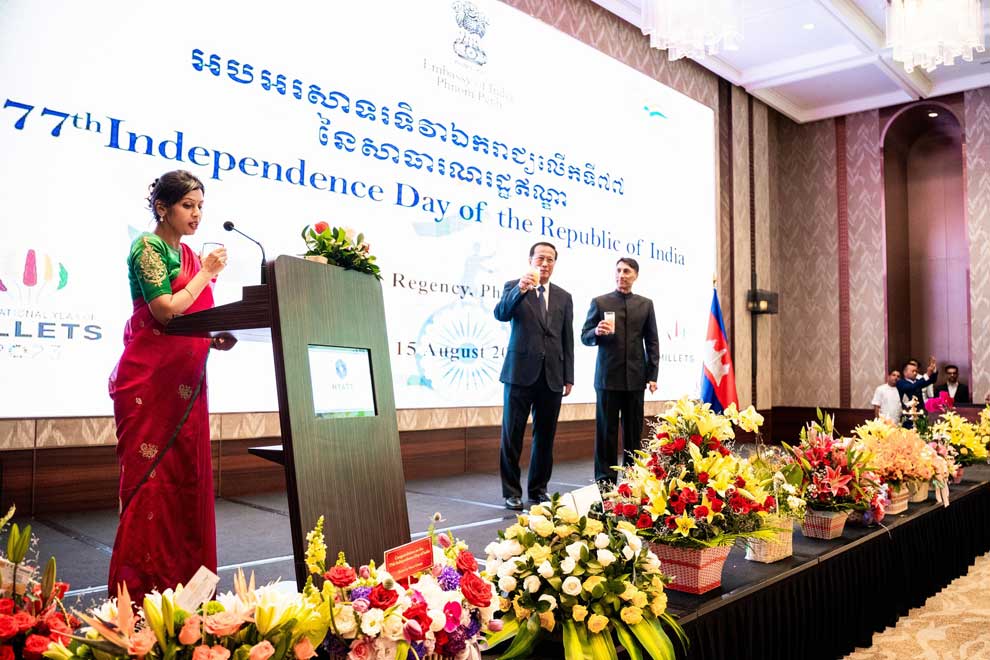
Indian ambassador Devyani Khobragade addresses the celebrations of the 77th anniversary of India’s independence on August 15. INDIAN EMBASSY
The strengthening ties between Cambodia and India, emphasised in commerce and cultural cooperation, were celebrated in grand style as the Indian embassy in Cambodia marked its 77th Independence Day.
Ambassador Devyani Khobragade highlighted the increased business interactions aimed at bolstering bilateral trade.
“The high-level visits of the leaders of the two countries have given new impetus to bilateral relations between the two countries. Through the historic visit of the King of Cambodia and H.E Hun Manet to India,” Khobragade said during the celebrations.
The festivities unfolded on August 15, starting at the Indian Embassy in Phnom Penh and culminating in an evening reception at the Hyatt Regency Hotel in Phnom Penh.
Distinguished attendees included Pan Sorasak, Minister of Commerce, and Ly Thuch, first vice president of the Cambodian Mine Action and Victim Assistance Authority, among others.
The guest list also boasted over 250 members of the Indian diaspora from diverse backgrounds, according to a statement from the embassy of India to Cambodia.
Khobragade highlighted the robust exchange of visits at various levels - political, defence, and parliamentary. Such exchanges, she said: “opened new vistas of cooperation and strengthened existing areas of capacity building, heritage conservation, and developmental support of the two countries”.
Thong Mengdavid, a researcher at the Mekong Centre for Strategic Studies, provided deeper insights into the long-standing relations between the two nations.
“India has played an important role in the development of the economy, human resources, culture and tourism, which are highly valued by the two governments,” he said.
He further explained: “Cambodia has considered India a key player in maintaining regional order and stability, as well as promoting regional economic activity. India views Cambodia as an essential strategic state in the region.”
Mengdavid concluded by expressing Cambodia’s hopes of India’s enhanced involvement in sectors such as education, technology, agriculture, and tourism under the framework of Mekong Ganga Cooperation.
This cooperation is symbolic of the shared aspirations and mutual respect between the two nations.
India and Cambodia share deep-rooted historical and cultural ties, according to Shiladitya Basu, an independent researcher at the University of Calcutta.
Buddhism acts as a connecting thread, with ancient temples honouring Hindu deities symbolising the intertwined heritage.
While cooperation exists under the Mekong-Ganga framework, Basu noted that bilateral trade remains largely limited to the textile sector.
He underscored the potential in “cultural diplomacy and people-to-people connectivity”.
“Tourism might be the golden thread binding the two nations, fortifying foreign relations,” Basu emphasised.












